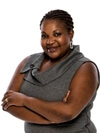Every April since 1994 I find myself struggling with what to feel or to write about yet another anniversary of the Rwandan genocide against the Tutsis. So here I am again, on the 19th anniversary of the 100 days that took my family, my friends and my childhood away, trying to express what it feels like – but mostly asking the world to remember with me, with thousands of other survivors and with Rwanda.
When I moved to Ottawa almost seven years ago to study, I thought I was far enough away, and that maybe I’ll be able to forget. The memories were becoming too heavy to carry. But as much as I wished to forget, I still remembered how it felt to hold and play with my little brother – he was two years old when the Hutus killed him. I still hear my mother’s voice while she sang Kinyarwanda songs – she loved to sing. I can still see my grandmother in her beautiful, squeaky clean bright yellow shoes. And every now and then, I think I see my grandfather walking towards me – tall and majestic. I remember each and every one of them (almost 30 people), as if they were here just yesterday.
And I wish you could remember them with me. They died a death I can’t begin to describe and I didn’t get a chance to say goodbye or even properly bury them. You didn’t know any of them, they lived in a land very far away from yours, but trust me, you would have loved them if you’d met them – my little sister’s smile would have won you over.
This month, from Toronto to Vancouver through Calgary, Montreal and Ottawa, Rwandans from across Canada will commemorate the genocide. These yearly gatherings, as sad as they are, help us feel less lonely in our journey towards healing. We meet, talk, share stories, listen to horrifying stories, hold each other’s hands – and sometimes even laugh a bit. There are not very many of us in Canada – or anywhere else for that matter, but we like to get together at least twice in the month of April, to remember and to stand strong together.
Over the years, survivors like myself have settled into our New-Canadian lives. And as years pass, at every gathering I am amazed by how we are growing stronger, emotionally or otherwise. Many of us are already in the work force, others are opening up businesses or finishing PhD studies. We work, we care for our families and look towards the future with the hope and faith that a land that generously received us will help us heal and thrive. And it has. Almost 20 years ago, we were mostly children or teenagers. Now, we have grown into resilient adults, poised to make it in a land colder than anything we’d ever known before. They didn’t kill us, so we made ourselves stronger. It may be the only good thing to ever come out of our painful past.
While we will be remembering, media across the country – of which I am a member – will also talk about this anniversary, which is a good thing. They will talk about the genocide as a political-historical event, they will wonder once more about the “official death toll number” – was it “really” 800,000 Tutsis murdered, or less than that? And the survivors? They will be wishing that their father or daughter were treated like more than a number to the world, for just this once.
After 19 years, tragedy fatigue might compel many to decide it’s time to move on. For us, however, it’s more than just another story. It’s about who we lost and what made us who we are, our daily battles with trauma, the never-ending dilemma of whether to share these stories with our children one day, and the eternal quest for a justice that will never be enough.
Remember with us so that what happened to our families and friends never happens again. Yes, the Rwandan genocide was carried out by our neighbours and people we knew, but please know that this is not just another African horror story. It had happened before us – in Europe – and it could happen anywhere again. The duty to remember is the price to pay to prevent this type of tragedy.
Remember with us, not because you must feel guilty as some often say – although some people at the UN probably should – but because we are a part of you and you are a part of us.
Alice Musabende is an Ottawa-based journalist and assignments editor for New Canadian Media. This commentary first appeared in the Globe and Mail.





